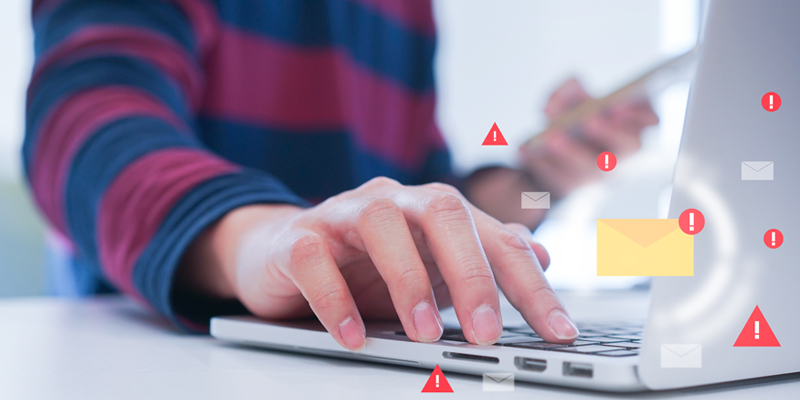Three Tips to Help Secure Your Online Banking Experience

In honor of Safer Internet Day, here are three ways you could make your online banking experiences more secure.
Safer Internet Day, a global event every February 9, serves as a good reminder that, when it comes to using the Internet, it’s on all of us to practice good “cyber-hygiene”—because doing so can help protect against online fraud that targets our money, identities, and other valuable sensitive information.
Unfortunately, fraud continues to be a major global challenge—and appears to be getting worse.
The numbers don’t lie
According to the Federal Trade Commission (FTC), consumers claimed to have lost more than $1.9 billion to fraud in 2019, a sharp increase from 2018’s reported figure of $293 million. While 2020’s stats aren’t yet available, they’re likely to be even higher due to pandemic-related scams; the FTC reported last April that, in the first three months of 2020 alone, Americans had lost over $13 million just to COVID-19-related scams.
It’s time to protect your money
Current online fraud trends suggest that everybody—businesses and consumers—could be targeted. And, if you’re banking more on digital platforms rather than in person because of the pandemic, it’s especially important you exercise caution to help ensure you don’t become a victim.
The next time you’re getting ready to do some online banking, consider these three tips that could help create a more secure experience:
1. Strengthen your account’s login security.
Whether banking through an app or via a website, you should ensure your account’s login is as secure as possible. For example:
- Passwords: Use only complex, hard-to-guess passwords that contain a healthy and lengthy mixture of letters, numbers, and symbols (as opposed to basic passwords, like “Password1”). Don’t share your passwords with anybody and update them regularly.
- Username: Create a unique username to use only with your bank accounts—nowhere else. Doing so could make it that much harder for a cybercriminal to guess your login credentials if they learned what you use for other websites and apps.
- Authentication: Add an extra step to your login experience by implementing multifactored (or “two-factored”) authentication. Doing so requires an added step, like entering a code sent to the account holder’s mobile phone via text message, in addition to a password in order to verify the person logging into an account is more likely to be its owner. This feature is likely available through your bank account’s online settings menu.
- Logging off: As convenient as it is to store your account’s password on your computer or mobile device’s browser so that you can log in quickly, a criminal accessing such a device with saved credentials could be extremely dangerous. Hence, consider logging out of your online bank account—whether you’re using a website or a mobile app—whenever you don’t need to access it.
2. Use a trusted Internet connection.
Whether you’re using a banking app or signing into your account from your bank’s website, do so using only a trusted, private Internet connection. That’s because connections like free public Wi-Fi available at spaces like cafes, airports, and hotels aren’t always secure. They may be susceptible to cyberattacks that give remotely connected criminals real-time access to users’ browsing activity—a potentially costly misstep if you’re viewing banking information in such a scenario.
When using a trusted Wi-Fi connection, consider also using a virtual private network (VPN) while online banking. Or, if using a phone or tablet, consider using its data network to access your bank’s mobile app to help create a potentially more secure connection.
3. Ensure you’re using the latest versions of both your operating system and Internet browser.
With Apple’s recent call for users to update their devices to the latest operating system, it’s a good reminder that, no matter what device you’re using to do your online banking, you should have the latest versions of both its operating system and Internet browser (as well as any anti-malware software your device uses).
That’s because researchers (and cybercriminals) continuously test operating systems and browsers for vulnerabilities that could in turn be used to exploit unsuspecting victims’ online activity (e.g., stealing login credentials, remotely accessing devices and/or accounts without detection). Updates typically contain new fixes to help protect against newly discovered vulnerabilities, meaning they could help provide a more secure experience.
Regularly check for and download updates directly from the vendor as they become available.
Don’t let up
The above tips could help you protect your online banking activity, but it’s not a comprehensive list. Talk to your bank about other ways you could potentially further secure your online banking experience. But don’t let up and assume that a few small steps mean you never have to worry about the security of your online banking.
For more fraud-fighting tips, check out this article on how to help protect yourself against social engineering scams specifically designed to appear to be from your bank.






